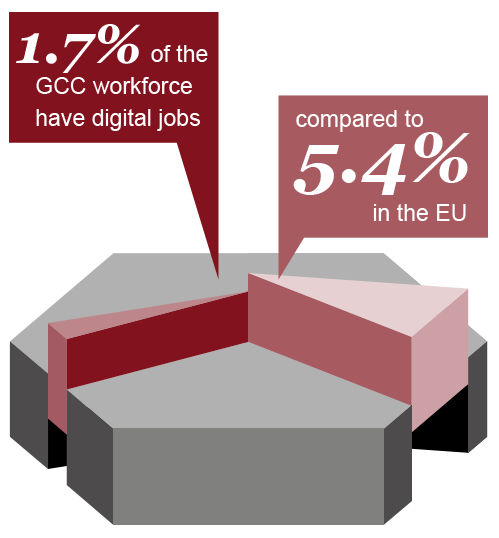{{item.title}}

Download PDF - {{item.damSize}}
There are currently fewer digital jobs in the GCC than in benchmarked countries. The average percentage of digital jobs within the total GCC workforce is only 1.7 percent, much less than the EU average of 5.4 percent.
Expatriates currently hold most digital jobs in the GCC. Nationals prefer more traditional career options such as in business, economics, and the public sector — areas that are at high risk of disruption.
Developing the digital job market in the region has the potential to create 1.3 million additional digital jobs in the GCC by 2025.
Digital jobs are more adaptable in the face of technological disruption, especially those related to emerging technologies. The growth of such jobs will help nationals move from largely administrative jobs in the government sector to higher-value-added roles in industries with future importance.
Digital employment involves more flexible work models which can increase labor force participation rates, particularly among women.
A skilled digital workforce is essential in the implementation of GCC economies’ ambitious plans and the digital transformation of organizations across sectors.
Digital professionals in the GCC do not yet have the advanced technical skills that are necessary in the digital age. Their skills are mainly soft and managerial (such as project management and team leadership), while advanced technical skills are more prevalent in developed countries. Also, those skills that are most highly prized by employers – across all industries and all types of jobs – are virtually absent among GCC digital professionals.
The skill gap grows out of root causes in supply and demand of digital jobs:

Download PDF - {{item.damSize}}








Menu